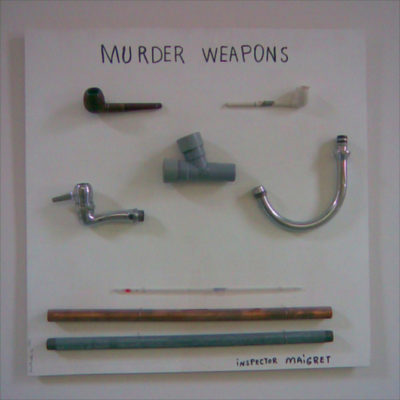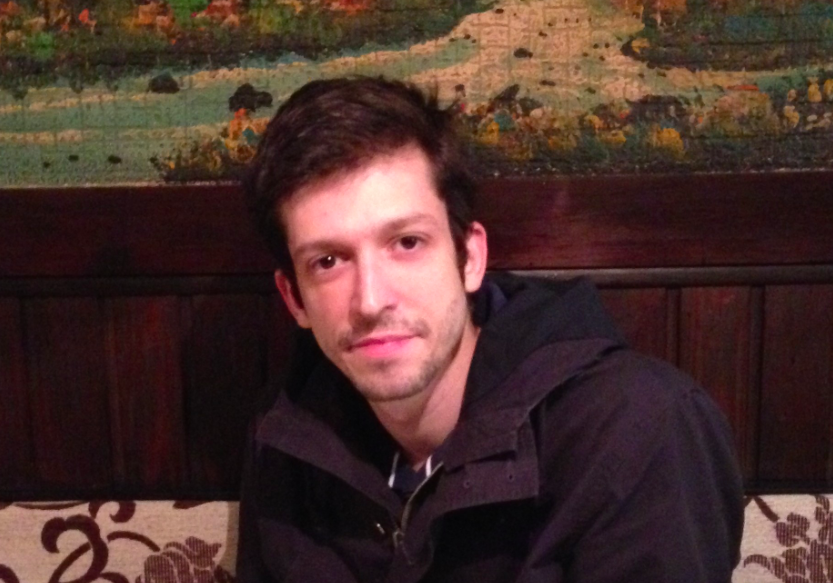Search
To search for an exact match, type the word or phrase you want in quotation marks.
A*DESK has been offering since 2002 contents about criticism and contemporary art. A*DESK has become consolidated thanks to all those who have believed in the project, all those who have followed us, debating, participating and collaborating. Many people have collaborated with A*DESK, and continue to do so. Their efforts, knowledge and belief in the project are what make it grow internationally. At A*DESK we have also generated work for over one hundred professionals in culture, from small collaborations with reviews and classes, to more prolonged and intense collaborations.
At A*DESK we believe in the need for free and universal access to culture and knowledge. We want to carry on being independent, remaining open to more ideas and opinions. If you believe in A*DESK, we need your backing to be able to continue. You can now participate in the project by supporting it. You can choose how much you want to contribute to the project.
You can decide how much you want to bring to the project.

You could feel as if you were going through a show centred on a new type of folklore, or visiting a historical exhibition about sculpture and cultural militancy in the 20th century, or embroiled in a gigantic group project of young artists that revolves around the epistemologies of the poetic, in its most radical and hospitalarian forms. Any of these, though in reality you find yourself wandering through the rooms of the retrospective of Jimmie Durham in the Museum of Contemporary Art in Antwerp (M HKA), A Matter of Life and Death and Singing, a captivating and very well documented journey through the work of Durham, curated by Bart de Baere and Anders Kreuger and accompanied by a catalogue, a web archive and shortly a book, recompiling all the artist’s texts that, which together resituate Durham on the horizon of key artists at present. The show recognises the impossible status of its object of study: a cult artist that at the same time as being a participant in demand on the circuit of biennales, is an investigator, a poet and a prolific author of simple objects imbued with spirituality and grand installations in specific contexts under the guise of small stories. Durham doesn´t appear like the author of a magnificent career so much as the close relative of a repertory of characters, related only for the magnitude of the racket they cause, who launched themselves into modelling material and meaning in times and places that are very distant from each other. American and cosmopolitan, Durham knows how to compose ideas looking at the problems of the time and place in which he finds himself—be it the United States, Belgium or Brazil—while at the same time recounting the history of the universe through an artificially innocent gaze upon the surrounding reality, always in a very forceful material and physical setting. The design chosen by the curators proposes simultaneously a disperse chronological and taxonomical order—or as Durham would say, one blessed with a certain incoherence: the rooms of M HKA excavate legendary exhibitions which Durham formed part of—such as Approach in Love and Fear, his participation in Documenta 9 (1992), under the curatorship of the very same Bart de Baere—at the same time as forming new groups between subgroupings of pieces that explore specific arcs of interest, such as architecture, the stone as a tool, plumbing (“and other connections”), etc.
From the first sculptures at the beginning of the seventies in the last century to his most recent works, Durham has developed a gaze on human civilization in its entirety (from his condition of American Indian and, later, by adoption as Eurasian), knowing how to convert this all encompassing perspective into a never ending repository of plastic problems with a strong enclave of specific materials – wood, stone—all approached with the joking and personal attitude that ends up being one of his characteristics. Be it as a sculptor, as a collector of wild mushrooms, or as a poet, Durham is above all a conversationalist full of digressions, nuances and questions, who knows how to get close up to the spectator to within a minimum, almost intimate, distance: the distance that requires the whisper and the wood cut by knife. His preoccupation with the processes of collective thought that give from to human life and their presence in the world extending from the age of stone to that of silicon, that formed the base material for the information technologies of the present, passing through the Renaissance, the conquest and the second world war. But this historic and geographic amplitude unfurls in the form of little anecdotes and simple actions, such as bringing together words in a journey through a city or stoning a fridge: small cumuli of meaning charged with affectivity and plastic potential. Through them, Durham constructs universes with a simple rhetoric, though one extremely rich in resources and attitudes—Durham, or all the artists that Jimmie Durham was at each moment, in any one of his incarnations, always surprising and blessed with a frank curiosity, similar to that of children.

Claudio Iglesias is an art critic based in Buenos Aires. His latest books are Corazón y realidad (Consonni, Bilbao, 2018) and Genios pobres (Mansalva, Buenos Aires, 2018).
"A desk is a dangerous place from which to watch the world" (John Le Carré)